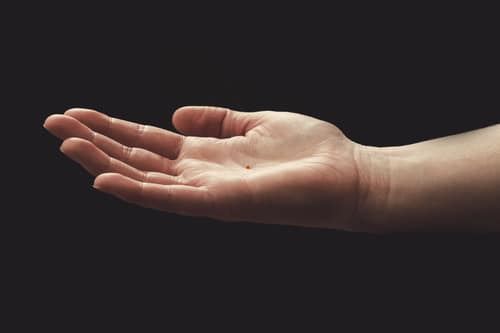 Gospel of 27 July 2020
Gospel of 27 July 2020
Monday of the Seventeenth Week in Ordinary Time
Matthew 13:31-35
The smallest of all seeds grows into the biggest shrub of all
Jesus put a parable before the crowds: ‘The kingdom of heaven is like a mustard seed which a man took and sowed in his field. It is the smallest of all the seeds, but when it has grown it is the biggest shrub of all and becomes a tree so that the birds of the air come and shelter in its branches.’
He told them another parable: ‘The kingdom of heaven is like the yeast a woman took and mixed in with three measures of flour till it was leavened all through.’
In all this Jesus spoke to the crowds in parables; indeed, he would never speak to them except in parables. This was to fulfil the prophecy:
I will speak to you in parables and expound things hidden since the foundation of the world.
Reflexion
These two parables are usually interpreted as illustrating how the Kingdom of God can have humble beginnings. But there is more to a parable than meets the eye. Parables are meant to challenge and upend our notion of what is normal, what we often assume and take for granted.
And so we have the first parable of the Mustard Seed. Most of us see this seed as harmless. But few realise that the mustard tree can grow like a weed and, like a weed it can soon overwhelm your entire garden. Furthermore, there is the matter of the birds - they may strike us as a charming touch, but remember that birds are an ever-present threat to the crops. Thus, the parable provides the early listeners with a startling metaphor. Jesus uses a parasitic plant, which attracts undesirables, and which can grow to unmitigated proportions, to describe the Kingdom.
And then there is the parable of the Yeast. A woman takes some yeast, mixes it with flour, and the dough rises. Most of us like this parable. It sounds like a cooking class. But this is not what it’s meant to be. The yeast is unpleasant, disgusting, and stinks. To a Jew, yeast was considered so foul that it was deemed to be ritually unclean, and it was banned from use in the Temple. On the eve of the Passover, the entire household will undertake a hunt for any item containing yeast within the house in order to remove this offending foodstuff ingredient. Indeed it had come to symbolise evil.
What is Jesus suggesting with these two images? Our Lord is reminding us that the Kingdom will expand in ways that we can hardly anticipate. You will agree that these parables are hardly bedtime stories for children. In fact, these nightmarish images can be upsetting as they challenge our preconceived notions about God and how He chooses to work. God does not only tolerate the messiness but in fact subverts the messiness and uses it as the raw material of His Kingdom.
This is the truth which the parables wish to convey to us - God can take the greatest of evils and turn them into the greatest of good. The cross demonstrates the veracity of these parables – God can subvert the worst evil for the greatest good, He can bring an unexpected blessing out of the most inexplicable form of suffering. If you have any doubts, look to the cross.
